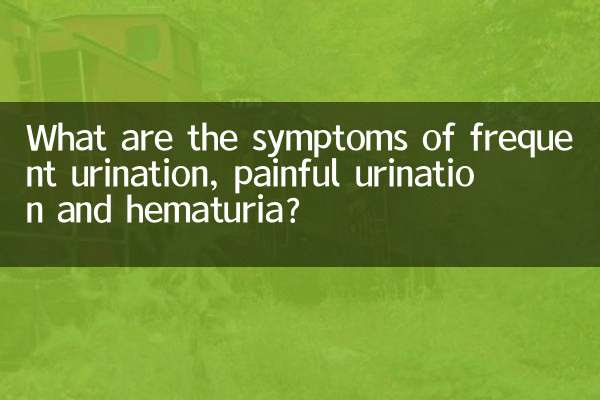What medicine should children take for acute nephritis?
Acute nephritis in children is a common pediatric disease, usually caused by streptococcal infection or other causes, and presents with symptoms such as hematuria, proteinuria, edema, and hypertension. The key to treating acute nephritis is to control symptoms, prevent complications, and choose appropriate drugs based on the cause. The following is a summary of hot topics and hot content about acute nephritis in children across the Internet in the past 10 days, as well as relevant drug treatment suggestions.
1. Common causes of acute nephritis in children

The causes of acute nephritis in children are diverse, including the following:
| Cause type | Proportion | Common symptoms |
|---|---|---|
| Poststreptococcal nephritis | 70%-80% | Pharyngitis and skin infection onset 1-2 weeks after |
| viral infection | 10%-15% | Such as Epstein-Barr virus, influenza virus, etc. |
| other bacterial infections | 5%-10% | Such as Staphylococcus aureus, Pneumococcus aureus, etc. |
| non-infectious causes | Below 5% | Such as allergic purpura, systemic lupus erythematosus, etc. |
2. Commonly used drugs for acute nephritis in children
Drugs used to treat acute nephritis in children mainly include antibiotics, diuretics, antihypertensive drugs, etc. The specific medication should be selected according to the condition and doctor’s advice.
| drug type | Commonly used drugs | effect | Things to note |
|---|---|---|---|
| antibiotic | Penicillin, amoxicillin | Clear strep infection | Not suitable for those with allergies |
| diuretics | Furosemide, hydrochlorothiazide | Relieve edema | Monitor electrolytes |
| antihypertensive drugs | nifedipine, captopril | Control high blood pressure | Start with a small dose |
| Immunosuppressants | Prednisone (severe cases) | suppress immune response | short term use |
3. Dietary recommendations for children with acute nephritis
In addition to drug treatment, dietary modification is also an important part of the treatment of acute nephritis in children. Here are dietary recommendations:
| dietary principles | specific suggestions |
|---|---|
| low salt diet | Daily salt intake should not exceed 2 grams and avoid pickled foods |
| High quality protein | Choose eggs, milk, lean meat, etc. to avoid excess |
| Limit moisture | When edema is severe, water intake needs to be controlled |
| Vitamin supplements | Eat more fresh fruits and vegetables and avoid high-potassium foods (such as bananas) |
4. Preventive measures for acute nephritis in children
The key to preventing acute nephritis in children is to avoid infection and promptly treat the underlying disease:
| Precautions | Specific methods |
|---|---|
| Prevent infection | Wash your hands frequently and avoid contact with infected people |
| timely treatment | Seek medical attention immediately if you find pharyngitis or skin infection |
| Enhance immunity | Balanced diet, moderate exercise |
| Regular physical examination | Especially children with a family history of kidney disease |
5. Popular topics on the Internet in the past 10 days
Recent hot topics about acute nephritis in children mainly focus on the following aspects:
| hot topics | focus of discussion |
|---|---|
| antibiotic resistance | How to rationally use antibiotics to treat acute nephritis in children |
| Traditional Chinese Medicine Assisted Treatment | Application of traditional Chinese medicine in acute nephritis in children |
| home care | How parents can take care of children with acute nephritis at home |
| Vaccination | The role of vaccines in preventing streptococcal infections |
6. Summary
The treatment of acute nephritis in children needs to comprehensively consider the cause, symptoms and individual differences of children. Drug treatment is mainly antibiotics, diuretics and antihypertensive drugs, combined with dietary adjustments and preventive measures. Parents should pay close attention to changes in their children's condition and take medication as directed by the doctor. Recent hot topics also reflect the public's concern about the treatment of acute nephritis in children, especially the rational use of antibiotics and home care.
If your child develops symptoms such as hematuria, edema, or high blood pressure, he or she should seek medical attention promptly to avoid delaying treatment. With scientific treatment and care, most children with acute nephritis can fully recover.

check the details

check the details